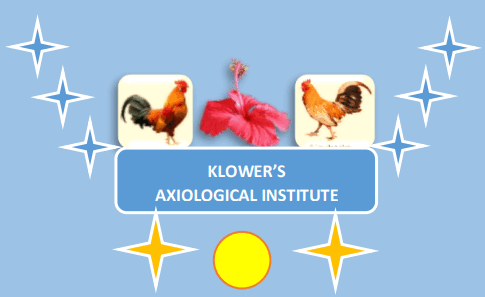Business Studies

About Course
Associate Degree Program
Human Resource Management (Psychology) empowers you to see human resources from a different angle. By exploring the human mind in a business context, you’ll have a significant advantage when performing key functions in your human resources (HR) role, from recruitment and workplace negotiations, to creating high-performance environments.
You’ll graduate with a more targeted knowledge base in psychology. This allows you to take a scientific approach to the day-to-day functions of a HR professional. Your deep understanding of human behaviour will be crucial when it comes to analysing employee performance, developing strong organisational culture and selecting the right person for the job. The course has been recognised by key accreditation bodies in HR and psychology as a degree that closely reflects the needs of the industry, largely due to our practical learning opportunities, including industry placements and overseas study tours.
If you’re interested in HR, why not graduate with complementary skills in psychology that make you stand out from the pack?
What Will You Learn?
- Able to Market Business and get new clients or customers
- Business Logistics
- Management
Course Content
Foundation of Psychological Science
This unit introduces students to the empirical foundations of psychology. The central question addressed is: 'What does it mean to be an evidence-based practitioner of psychology?'. Topics include: the nature of evidence in psychology; the relationship between psychological research and practice; experimental, quasi-experimental, and non-experimental quantitative research designs; qualitative research; threats to the reliability and validity of research; statistics and the interpretation of results; ethical research and ethical practice in psychology.
Foundations of Psychological Practice
Psychology A: Fundamentals of Human Behavior
This introductory unit explores the fundamental principles underpinning the study of human psychology. As such, it will cover the definition and scope of the discipline of psychology; the primitive roots of our behaviour; the neurological structures and processes that are responsible for our mental life; and the important elements in our adapting to the world as individuals such as learning and intelligence.
This unit will provide an integrated and challenging introduction to psychology as a science, while also providing training in important skills for tertiary education as a whole through the seminar series. In completing this unit, students will gain new insights into the science of behaviour, a mastery of important research and writing skills, and a strong platform for learning advanced topics in psychology.
Psychology B: Individual and Social Development
Following on from the biological underpinning of psychology in HPS111, HPS121 focuses on the science of the human individual in context. Different theoretical perspectives of psychological concepts relating to how we function as individuals in a social world are contrasted and evaluated throughout the unit.
We begin by looking at how we - as both biological and social beings - develop throughout the lifespan as we explore the complex interaction between biological and environmental influences. Various theoretical perspectives are applied to explore what makes up our individual personalities, and how personality is assessed. The impact of psychological disorders on individual and societal wellbeing is considered, and the different therapeutic approaches used to treat these disorders are analysed. We then examine the power of situational, societal, and cultural influences on behaviour.
The HPS121 teaching team aim to deliver challenging and fascinating psychological concepts in a way that you can apply to your own personal experiences, future study and career. In the class series, the unit will incorporate the content areas of HPS121 into a holistic understanding of the interactions and relationships between the topics, all within the context of psychology as a scientific discipline. The seminar series will enable you to develop real-world applied skills that will help you work through the unit as well as expose you to some of the processes involved in working as an allied health professional. The assessment tasks are designed to help you develop industry-related skills and knowledge.
Though the unit content and assessments have been designed to help you broaden your understanding and skills developed in HPS111, HPS121 has been constructed so that students may do the two units in either order, or do either unit individually.
Psychology of Research Methods (Introductory)
Content
This unit will introduce students to a variety of parametric univariate statistics commonly used in psychology. The focus is on both a conceptual and analytical understanding, rather than strict computational problem solving. The unit progresses from a discussion of descriptive statistics and the foundation of hypothesis testing to the introduction of specific statistical tests such as the t-test, chi-square, Analysis of Variance, Correlation and Regression. An important focus of the unit is on understanding the logic underlying the various statistical analyses covered. The unit also emphasises links between specific statistical analyses and common study designs used in psychology. Students will be taught to analyse data primarily through definitional formulae, as well as a computer-based statistical package.
Child and Adolescent Development
Content
The unit addresses the study of several aspects of child development (cognitive, linguistic, social, emotional, biological, motor, moral, developmental disorders) from infancy to adolescence using a variety of theoretical orientations, and involves applying the processes of development to understand real-life problems.
The Human Mind
Content
This unit presents a broad coverage of theories proposed by psychologists to explain the processes by which humans acquire, store, communicate, and use knowledge or information; the various research methods used by psychologists to study these processes; and some classic experimental findings in cognitive psychology which are the cornerstones of these theories. Topics covered in the unit include object recognition, attention, memory, reasoning, decision-making and problem-solving. These topics are treated within an information-processing approach to human cognition.
Human Social Behaviour
Content
This Unit covers the main theories and research methods of social psychology. Topics include: research methods and ethical issues in social psychology; social cognition; attribution; nature and measurement of attitudes; changing attitudes; conformity and social change; group processes and decision-making; prejudice and intergroup behaviour; culture; self and identity; aggression; attraction and close relationships; and prosocial behaviour.
Psychology Research Methods (Intermediate)
Content
This unit provides an advanced treatment of several important techniques required for the conduct of independent research. Topics include experimental design and the analysis of variance (ANOVA) statistical procedure including planned contrasts, simple effects, interpretation of higher order factorial designs; repeated measures and mixed-mode ANOVA; non-experimental designs, scale construction and surveys; sampling; data screening; and multiple regression.
Students will be given experience in the design and conduct of psychological research, analysis of data using a computer-based statistical package, and writing research reports using APA format.
Business Ethics
Content
This unit aims to develop students' awareness of the role that ethical issues play in business life, in particular, business policy formulation and implementation; management policy formulation and implementation; and employee rights and obligations. It also aims to develop students' ability to critically analyse ethical issues which arise in business life.
Employment Relations
Content
This unit provides a general introduction to the study of industrial relations. The multi-disciplinary nature of the unit is stressed within an introductory systems framework. Various sociological, economic, legal and other theories of industrial relations are examined. The system of workplace governance under the Fair Work Act 2009 is considered, as well as the role of trade unions, employer associations, collective bargaining processes, and various laws pertaining to contracts of employment, equal opportunity and occupational health and safety.
Change Management
Content
This unit provides an advanced understanding of various change management models within a sustainability framework. The unit takes a critical approach to the drivers of organisational change and the process for managing change while ensuring business sustainability.
Organizational Behaviour
Content
This unit examines the processes and structures at the individual, group, and system level which influence organisational behaviour. The aim is to develop an ability to analyse and evaluate the behaviour of people in organisations. The unit covers topics such as perception, values and attitudes, motivation, leadership, power and politics, work and organisation design, organisational culture, organisational change and development.
-
Introduction
